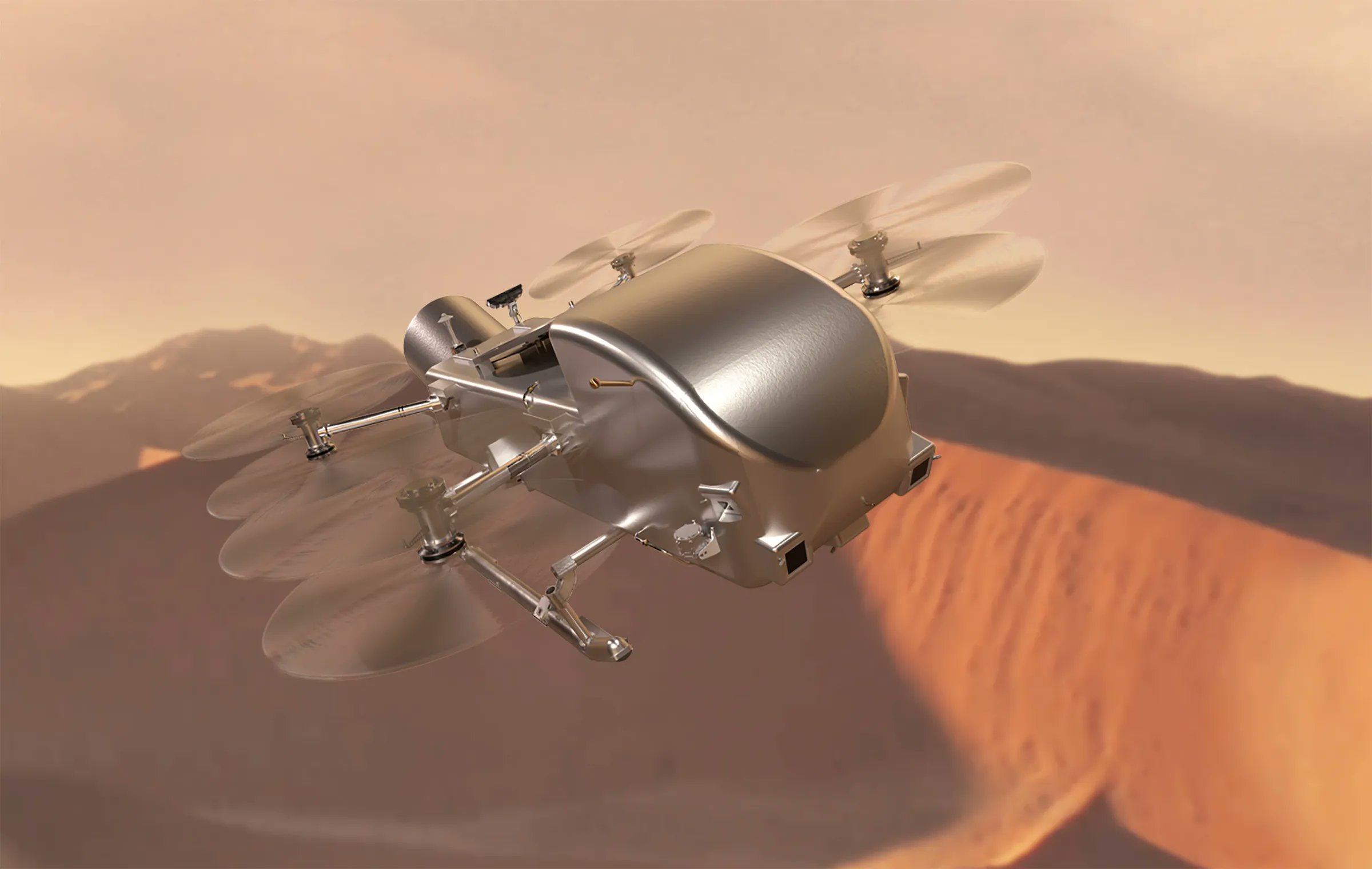Confirmed! NASA is going to Saturn’s Moon Titan

- Country:
- United States
NASA has officially confirmed its Dragonfly mission to Saturn's largest moon Titan. This announcement allows the mission to move on to the next phase of development i.e. completion of the final design, followed by the construction and testing of the entire spacecraft and science instruments.
Dragonfly is a rotorcraft lander designed to leverage Titan's environment to sample materials and determine surface composition in different geologic settings.
NASA is targeting no earlier than July 2028 for the launch of the Dragonfly mission. The rotorcraft is expected to arrive at Titan in 2034, where it will explore dozens of promising locations, hunting for prebiotic chemical processes common on both Titan and the early Earth before life developed.
According to the mission website, Dragonfly will cover tens of miles or kilometers within an hour, farther than any planetary rover has travelled. Despite its unique flying capabilities, the rotorcraft would spend most of its time on the moon's surface conducting scientific measurements.
We're going to Titan! NASA officially confirms the #DragonflyMission to Saturn’s organic-rich moon Titan, allowing the rotorcraft to progress to completion of final design, followed by the construction of the spacecraft and science instruments.🚁: https://t.co/A7hLXGAJtT pic.twitter.com/fmFzg1ee5h
— NASA 360 (@NASA360) April 18, 2024
Why Titan?
Titan is an ocean world and the only moon in our solar system with a thick atmosphere, which supports an Earth-like hydrological cycle of methane clouds, rain, and liquid flowing across the surface to fill lakes and seas.
The moon's surface, primarily composed of water ice blanketed with complex, carbon-rich organic compounds, offers a unique setting for studying prebiotic chemistry. The presence of organic molecules - the building blocks for life - makes Titan an exceptional natural laboratory for investigating the necessary conditions for life in extraterrestrial environments.
"Dragonfly is a spectacular science mission with broad community interest, and we are excited to take the next steps on this mission. Exploring Titan will push the boundaries of what we can do with rotorcraft outside of Earth," said Nicky Fox, associate administrator, Science Mission Directorate at NASA Headquarters in Washington.










